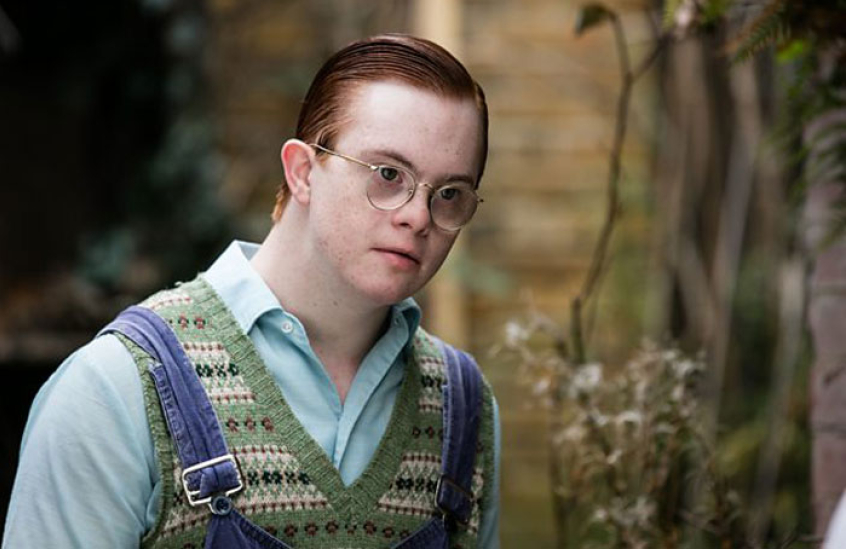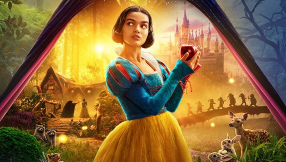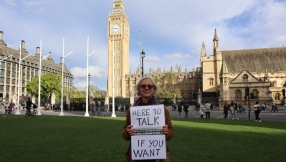
How many times do you see disabled people on the TV? The BBC seem to have quite a few specialist reporters – more than I've seen in a long time. They also use the occasional disabled actor too.
When a UK soap uses a disabled actor, it makes the news. Is this because it's so unusual, or because it's getting feel good publicity for the programme and it's producers? Should it be so unusual that it makes the news?
Last week, the Creative Diversity Network's Diamond Survey, compiled from 30,000 people who work in the TV sector, found that disabled people, as well as those over 50, are under-represented across the industry.
They also found that BAME and LGBT+ are over represented. The report wasn't saying this is wrong, but when you look at the national percentages and ratios of those covered in the diversity act, for those with disabilities there was a huge disparity in representation on the TV.
I took to Google to see what people were saying. Only two news sources had picked this up – one, The Times, using quite an unhelpful clickbait title of "Gays and ethnic minorities 'over‑represented' on TV". Diversity isn't a competition!
But it has to be said that the figures do speak for themselves. I am surprised how few newspapers picked this up. The Guardian picked up the 2017 survey two years ago, showing very little change in the figures – slightly better, but not enough.
I ask with a cynical edge: if it was one of the other diversities who were this under-represented, would the reporting have been more widespread? As I said, diversity isn't a competition – but from bitter experience, I think there would have been an outcry.
Seventeen per cent of the population in the UK are classed as disabled – a low estimate according to those in the know who would put it closer to 20%. But in the TV industry only 7.8% of those on screen have a disability, and 5.2% off screen. I'd love to be able to see how many of those are in higher management and production. Probably not many.
For comparison, the figures for black, Asian and minority ethnic people (BAME) are 13% of the national workforce but a representation of over 23% in on-screen roles, showing an even higher percentage in drama roles at over 26%. This has attracted some backlash and complaints that the BBC have been "crowbarring" ethnic characters into classic stories where there is no representation at all. Personally, I don't see this as a problem.
For LGTB+, the figures say they take 11.9% of roles, compared to accounting for 6.4% of the population. As people have dug into and analysed these figures, they have found that as a gay man, you are twice as likely to get an on-screen role on the TV.
Deborah Williams, CEO of the Creative Diversity Network, is reported to have said: "There is still a fear among broadcasters that disabled people are a 'problem' or expensive to hire. As a result they are written out of the narrative of stories TV chooses to tell."
I and many other disabled people would add another scenario here: where there is a disabled character in a film, it is common to have a non-disabled person play that role – commonly called 'cripping up' by those who are disabled.
I'm pleased to say that many of the BBC dramas will use disabled people in these roles, but the storylines are few and far between and tend to be a cameo role as a feel good factor, not just a normal everyday disabled person getting on with life.
Over in America, NCIS will often have a disabled person in the storyline - people who are getting on with a job but just happen to be disabled. It's the same with some of their hospital dramas – just like in real life, they have doctors with disabilities too.
I've been thankful to Call the Midwife for having disabled people in their storylines. Although not always realistic, they are at least raising awareness.
I'd like to close with a little segue that I will be following up at a later date. I've been doing some research into how the church fares in it's representation of disability in its 'workforce' - those in ministry, volunteering and working for Christian organisations. So far, it's not looking good.
Kay Morgan-Gurr is Chair of Children Matter and Co-Founder of the Additional Needs Alliance, part of the Evangelical Alliance Council. For more, www.kaymorgangurr.com and on Twitter @kaymorgan_gurr









